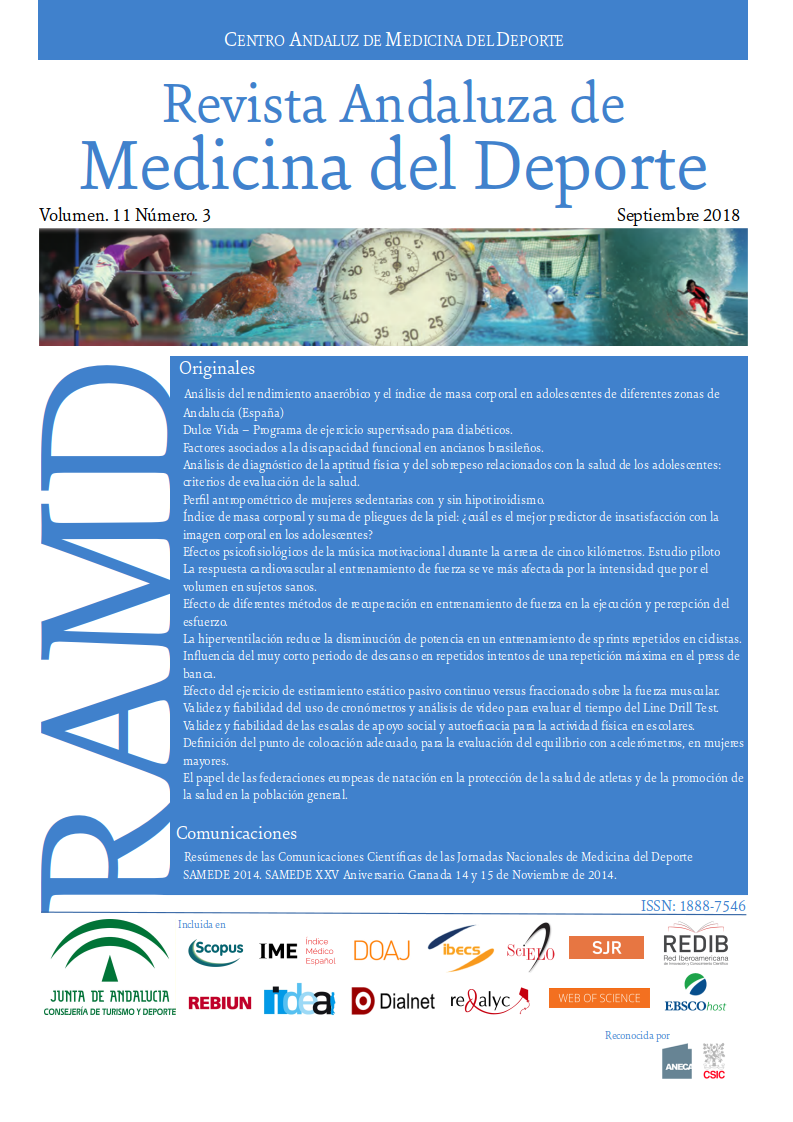Cardiovascular response to strength training is more affected by intensity than volume in healthy subjects
Keywords:
Salud, Ejercicio de fuerza, Procesos fisiológicos cardiovasculares, Frecuencia cardiaca, Presión Arterial Health, Resistance exercise, Cardiovascular physiological processes, Heart rate, Blood pressure Saúde, Exercício resistido Processos fisiológicos cardiovasculares, Frequência cardíaca, Pressão arterial
Abstract
Objective: To determine and compare the cardiovascular responses to three resistance exercise protocols with different volumes and loads. Methods: The study included 15 healthy subjects, experienced in resistance training, who underwent supine bench press exercise with three different volumes and loads separated by 48 hours, with a crossover model: a) 4 repetitions at 90% of one repetition maximum (4/90%), b) 8 repetitions at 80% of one repetition maximum (8/80%), and c) 15 repetitions at 65% of one repetition maximum (15/65%). Immediately following each protocol, measures of heart rate, systolic and diastolic blood pressure were performed, and were used to calculate the rate pressure product.
Results: The 4/90% protocol resulted in an increase in heart rate (Δ = 84.57%; effect size [ES] = 0.31), systolic blood pressure (Δ = 24.03%; ES = 0.42), diastolic blood pressure (Δ = 8.47%; ES = 0.27) and rate pressure product (Δ = 129.65%; ES = 0.54). The 8/80% protocol resulted in changes on: heart rate (Δ = 74.94%; ES = 0.57), systolic blood pressure (Δ = 20.67%; ES = 0.27), diastolic blood pressure (Δ = 6.91%; ES = 0.15) and rate pressure product (Δ = 111.78%; ES = 0.48). The 15/65% protocol resulted in alterations on: heart rate (Δ = 66.77%; ES = 0.39), systolic blood pressure (Δ = 16.85%; ES = 0.35), diastolic blood pressure (Δ = 3.38%; ES = 0.13) and rate pressure product (Δ = 96.41%; ES = 0.30). Increases in all variables pre to post resistance exercise were observed for all protocols (p < 0.05). When comparing the three different protocols, it was found that the heart rate (p < 0.001), systolic blood pressure (p = 0.034) and rate pressure product (p < 0.001), were more elevated in the 4/90% compared to the 15/65%.
Conclusion: The bench press exercise performed with low volume and high intensity promotes a more pronounced cardiovascular response compared to the same exercise performed with high volume and low intensity.
Published
2018-04-20
Section
Originals


